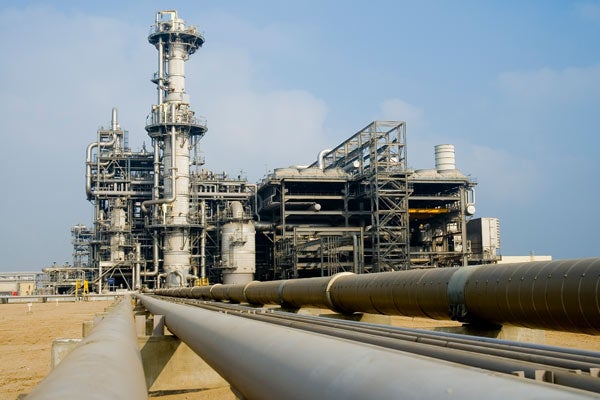The U.S. House of Representatives on Wednesday voted 266–150 to pass a bill that cuts federal red tape and accelerates liquefied natural gas (LNG) exports to Europe and other allies.
The Domestic Prosperity and Global Freedom Act (H.R. 6) authored by Rep. Cory Gardner (R-Colo.) now moves to the Senate. Experts suggest it has a 20% chance of being enacted.
The bill seeks to expedite the construction of LNG facilities to ensure exports can begin by at least 2018. It essentially provides that once the Federal Energy Regulatory Commission completes an extensive environmental review for a project, complying with the National Environmental Policy Act, the Department of Energy (DOE) will have only 30 days to issue a final decision on the pending application.
Significantly, it also amends the Natural Gas Act and requires that before authorization is granted to export LNG, applicants must publicly disclose where the exports are going.
The DOE on May 29 proposed to suspend its current practice of issuing conditional decisions on applications to export LNG from the lower-48 states to countries without free trade agreements with the U.S, and to instead act on applications only once an environmental assessment is completed. As attorneys from law firm Mayer Brown noted in early June, that proposal “could dramatically reshuffle the existing order of precedence for processing applications, benefiting those further along in the environmental review process at the expense of those lagging behind, regardless of their place in line otherwise.” The firm also said that the proposal “likely will also have the effect of slowing down the overall pace of approval for some time, as all participants involved adapt to the new regime.”
In his opening statement as debate on the bill began on Tuesday, Rep. Gardner said that “the decades-old federal approval process for LNG export facilities is acting as an impediment.” The U.S. is capable of meeting domestic demand for affordable natural gas while also producing a surplus for export, he said, but proposed projects have languished at the DOE for years. “And while DOE has recently announced some changes to the process, the agency is still under no deadline to act.”
The bill would also serve as a U.S. measure to “push back against Russia’s aggression and help our friends without ever putting any troops in harm’s way,” Gardner said. LNG exports could also serve to strengthen economic ties with Europe and Asia, “who would rather buy their energy from us than from less reliable Middle-Eastern suppliers,” he added.
Last October, the Committee on Energy and Commerce held a forum that included ambassadors and other officials representing 11 U.S. allies, all of whom strongly urged the U.S. to enter the global LNG marketplace, Gardner said. “And since then, several other allies have stepped forward with the same request. This includes our friends in Eastern Europe unfortunate enough to be reliant on Russia for natural gas.” In March of this year, the Senate Committee on Energy and Natural Resources also held an oversight hearing focusing on the LNG export issue.
The 35% House minority that voted “nay” on the bill on Wednesday were all Democrats. However, the bill has been strongly opposed by several manufacturers and commodity producers, as well as publicly owned natural gas distribution companies.
On Monday, America’s Energy Advantage (AEA), a trade association that advocates domestic consumption over exports of new natural gas supplies, in a letter to House leaders said H.R. 6 would harm U.S. economic growth and job creation.
“As we have repeatedly stated, allowing the unlimited and unchecked export of LNG to nations that have yet to sign free trade agreements with the U.S. will undermine the efforts of U.S. trade negotiators to open closed markets to all American goods and services,” the AEA letter says.
Meanwhile, “[t]he legislation would also expedite the export of nearly half of U.S. domestic natural gas production to our overseas competitors,” it notes. “Exports of this scale will raise domestic natural gas and electricity prices for every American, undermine our manufacturing competitiveness and cost the nation good-paying jobs.”
AEA warns that supply disruptions are already occurring without large-scale LNG exports. “The U.S. sent a record-high 20% of domestic supply overseas last fall. Supplies plunged to historic lows, and the tough winter sparked shortages, skyrocketing prices and suffering for families, farmers and businesses. A similar crisis in natural gas would be far more painful, as natural gas fuels millions more homes, farms and businesses than propane,” it says.
—Sonal Patel, associate editor (@POWERmagazine, @sonalcpatel)









